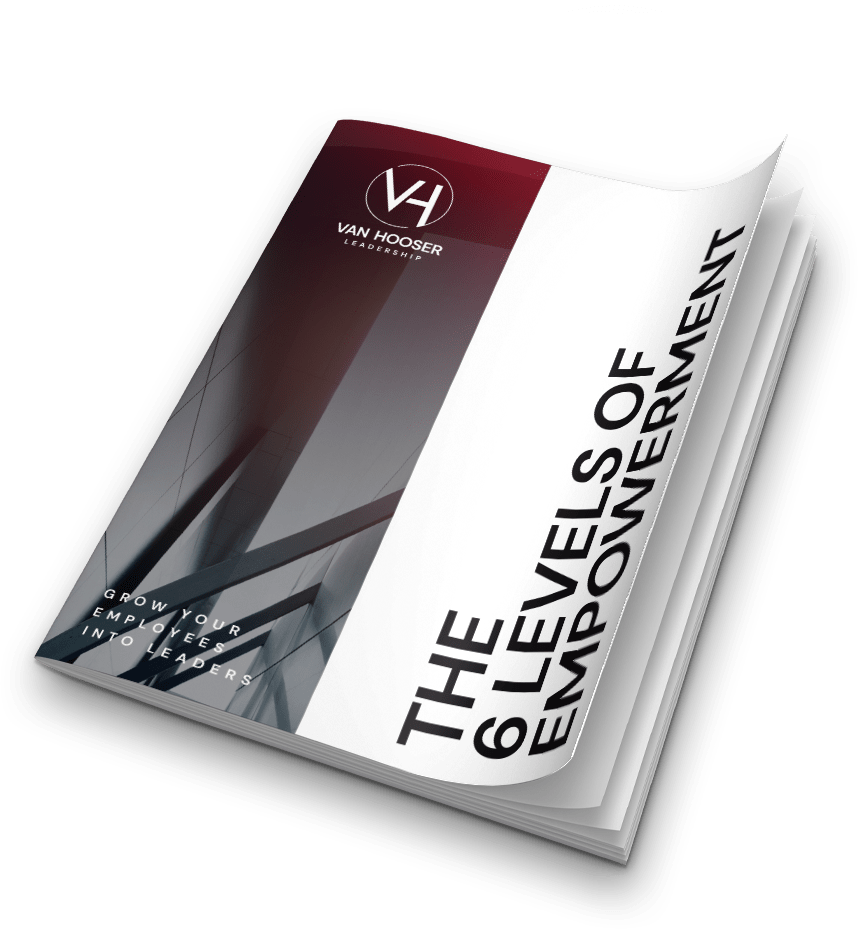I think you would do this, but tell me if I’m wrong. If an employee came to you and legitimately asked for specific training to help them better understand how to use the company intranet, understand the policies better, or improve their technical skills — you would probably do everything you could to make sure they had the proper training so they could be successful, right?
What if there is training you could give them that either they won’t be bold enough to ask for or don’t even recognize they need it…and it’s the x-factor that will elevate BOTH success for both of you? Let’s talk about the details…
Emotional Intelligence is the X-Factor
Many leaders are quick to give opportunities to employees if it means it will improve their performance. Oftentimes those opportunities are focused on building technical skills within their team while soft skills development falls by the wayside. Although, an investment in soft skills — particularly in the way of emotional intelligence — will be an investment that checks a lot of boxes for you as a leader and for them as an employee.
Do you want to be wildly successful leader in the future? You must invest in your people’s lives. Notice that I didn’t say invest in their people’s professional lives. Why? Because those in today’s high-performing workforce are demanding that leaders and organizations invest in both the employee’s professional AND personal success — their whole life. How do we see this playing out in the real world?
Work-Life Integration
One part of the equation is that for decades there was a push in the workforce for better work-life balance. People wanted to be able to have enough time away from work to reasonably do what they wanted for themselves, with their family, or with their friends outside of work.
Things are changing again. Now employees are pushing for work-life integration.
What’s the difference?
Work-life balance allows you to healthily do both separately, whereas work-life integration allows you to mix both work and personal life. For example, more and more people are fine with answering emails or calls on the weekend if it means they are free to take care of something personal in the middle of Monday without using some of their 2.5 weeks of vacation time.
This should matter to leaders who want to be the best-of-the-best. Why? Because the number of leaders and companies that are making strides to meet these new desires for employment to both work within and improve their life — is growing rapidly.
Leaders, if you don’t step up to the plate, your leadership may quickly become out of date.
Your people will easily move on to a leader or a company that will invest in improving both their personal and professional life.
There are many ways you can work to meet these specific desires of your high-performing, younger generation employees. Today we’re going to talk about one investment you can make in your employees that will help them be more successful at work AND at home…and it will improve your leader / employee relationship, too! It’s a win-win-win!
Emotional Intelligence — A Strategic Investment
At any given point in time, employees may be handling a tough workload, preparing or giving high-pressure presentations, dealing with a crazy co-worker, celebrating a month-end success, etc. — and that’s just at work! At home, they may have any number of challenges or joys they’re dealing with.
Whether a person is at work or at home, emotions are in all of us. Those people who’ve developed the skill of controlling their emotions will ultimately be able to control their performance, job satisfaction, and well-being.
As a leader, if you choose to invest in helping improve the soft skill of emotional intelligence within your workforce then your people will be able to perform better at work and at home. Additionally, if you’re making strides toward work-life integration, then the employee will be better able to switch between the two quickly.
Finally, if all of your employees have high emotional intelligence then odds are that your job satisfaction and retention rates will increase. When you invest time and resources into improving your workforce’s emotional intelligence, you improve their professional AND personal lives!?
What Emotional Intelligence Is Not
Maybe you’re rolling your eyes at the idea of a need for improved emotional intelligence among your workforce. Many people consider emotional intelligence to fall under the personal development umbrella. When many people hear the words personal development they picture some sort of therapy, exercise program, snake oil, or a person named Wildflower who is going on a sabbatical.
I get it. There are many reasons personal development training or practices have gotten a bad rap, but hear me out. Don’t choke on this…but you may be missing something. Specifically, the impact of emotional intelligence in your business.
Hyperaware of Risks and Opportunities
The psychological term emotional intelligence means choosing to have “the capacity to be aware of, control, and express one’s emotions, and to handle interpersonal relationships judiciously and empathetically.”[1] In other words, becoming hyperaware of what is happening inside of you.
I use the word hyperaware intentionally. There is a difference between just being casually aware of something and then being extremely or excessively aware of something. Those are two very different approaches. If you are casually aware of something, you might notice it every now and then. If you are hyperaware of something, then your antenna is constantly up. You are paying attention to every aspect of what is going on. So, when I say hyperaware here, I mean being extremely aware of yourself internally and externally.
I have a business degree, a couple of different certifications in different professional realms, and I’ve worked in the corporate world for about ten years. If I were to make a list of all the things that were talked about around the Board table, all the things I’ve was trained to do as an employee, emotional intelligence would be at the bottom of the list. What’s funny about that is that I use emotions every single day at work — we all do.
The skill of emotional intelligence isn’t as major of a focus in corporate workforce development as technical skills are. While those hard skills are important, it’s the soft skills that take everything to the next level. How we handle our emotions has a direct impact on:
- how well we do our job,
- whether we build or destroy relationships with our co-workers,
- our level of job satisfaction…and more!
I passionately believe employees will perform so much better when they’re able to navigate and control their emotions.
My Personal Development Journey
Simplified into one sentence, I grew up in poverty, my parents abandoned me as a child, and I’m now at a place where I’ve earned continued success personally and professionally. Understanding what is physiologically and psychologically going on inside me –emotional intelligence — has been the x-factor that helped me take control of my personal and professional success.
How did I develop high emotional intelligence? I am releasing a book later this year that digs deep and will teach you my exact process: Catch & Crush. But for now, whether you’re a leader or employee, your feelings can crush you or help you crush your goals. You decide.
Improve Performance, Culture, & Retention
If you knew something was robbing you of your best success — wouldn’t you take action to minimize that risk? Absolutely! Low emotional intelligence is that risk. Training and developing your employee’s skill of emotional intelligence is how leaders mitigate that risk. It’s time to take action to increase your likelihood of future success!
Ready to help your employees be their best personally and professionally? Let’s talk!
#emotionalintelligence #softskills #emotionalintelligencetraining #softskillstraining #genZ #millennials #multigenerationworkforce #leadershipdevelopment #workforcedevelopment
[1] “Emotional Intelligence,” Lexico, https://www.lexico.com/en/definition/emotional_intelligence.










